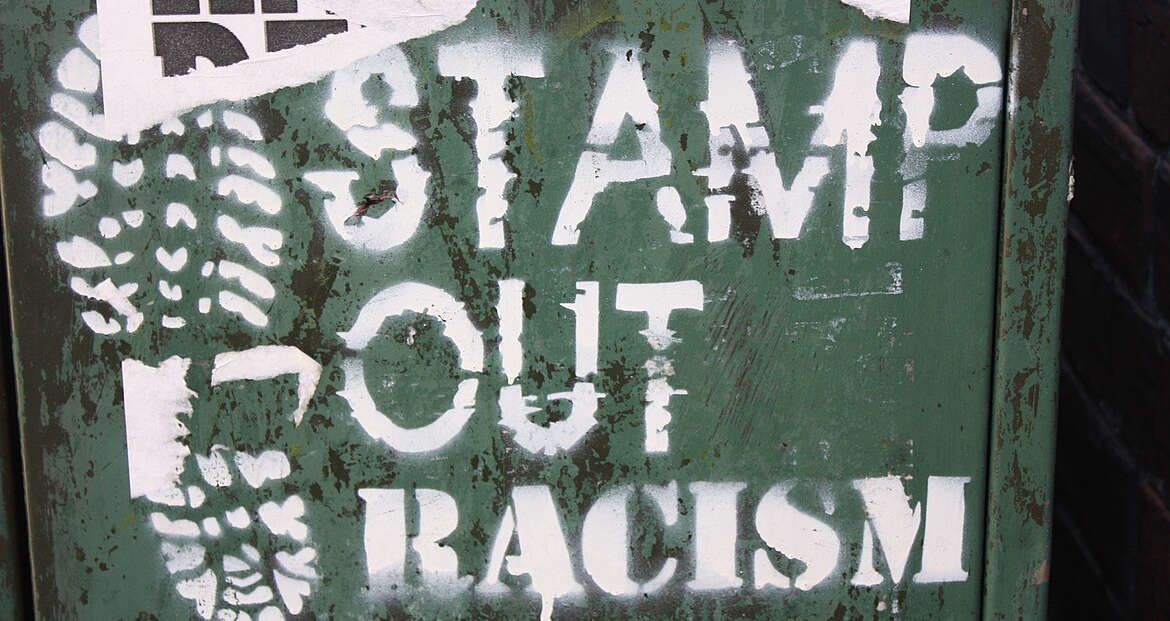Racism in Belfast: Enabling racist violence
Instead of listening to public authorities endlessly repeating tropes like ‘Say No to Racism’ and ‘We Support Diversity’ but taking no action, let’s instead keep asking the questions raised by families following the attacks on their homes last year and in the last few weeks and see where they take us.
Almost an entire year has passed since we originally supported families whose businesses were being attacked and then burned out by racists in Sandy Row. Since the attacks on these businesses in August 2023, this organised racism has been growing, even before the violence seen at the beginning of this month. In the year 2023/24, the PSNI reported logging 1,353 ‘race incidents’ across the North, the highest since data began being collected in 2004/5.
With race incidents significantly under-reported here, the real figure is likely to be much higher. Between November 2023 and July 2024, racist signs and ‘locals only’ graffiti have appeared in places such as Rathcoole, Finaghy, the Belvoir Estate, and the Shore Road. There were several reports over these months of families being relocated from these areas and others due to racist intimidation.
On the 3rd August, this tension escalated into a night of targeted attacks, when seven Black-owned businesses on Sandy Row, Donegall Road, and Botanic were struck by rioters, following a Far-Right march in central and South Belfast, at which known paramilitaries were also present. Homes and businesses continued to be targeted throughout the week, with a petrol bomb thrown at a mosque in Newtownards in the early hours of Saturday 10th August.
Many of the victims of last year’s violence went public in the hope of provoking a reaction from those authorities which are duty bound – under criminal law as well as equality and human rights law- to protect them from what the PSNI itself called ‘organised’ violence. Instead victims found themselves answering questions from the PSNI as to ‘why they thought they had been targeted.’
What PPR and the communities we work with have seen in August 2024 and earlier, is that racist activities continue to be legitimised and normalised by many powerful institutions. The political cover at the highest levels afforded to local white supremacist paramilitary organisations goes on every day. Politicians are routinely excusing, enabling and deflecting the violence by telling stories about people’s identity crisis, discomfort with diversity - or the loss of public services. The PSNI itself has continued to be routinely involved in racist activity – sending the files of asylum seekers who report crimes against them to the UK Home Office, stopping more black people than white on the streets, claiming that racist attacks are non-crimes. We have statutory organisations funding charities to reach out to armed groups on behalf of victims – to establish exactly what level of threat the armed group wishes to communicate. Why should victims of racist violence be put in the position of negotiating with their aggressors? What can the victim do during this negotiation – change their skin colour?
Unfortunately, this racist rot, built on a sectarian rot which has legitimised the violent control of people and territory in support of a dominant political ideology, is going nowhere any time soon. Integration, diversity and the end of segregation is actually an existential threat to some gate keepers and political parties – segregation remains good business for many.
An entirely new state supported industry has morphed into existence over the course of the peace process which is maintaining the status quo and supporting middle men who are supposed to help us understand and respond to the needs of racists and paramilitaries with territorial agendas.
An entirely new state supported industry has morphed into existence over the course of the peace process which is maintaining the status quo and supporting middle men who are supposed to help us understand and respond to the needs of racists and paramilitaries with territorial agendas. If we believe the rhetoric, they are necessary to protect victims. But this is an industry deeply compromised by its own existence - premised as it is upon maintaining relationships with, and thereby conveying legitimacy upon, armed racists and sectarian bigots.
But the rest of us don’t have to lie to ourselves - it is ridiculous to pretend that the systems and organisations we have in place today to tackle racism and sectarianism are doing anything other than enabling them further. The evidence is laid bare in the everyday experiences of people who are being attacked and the organisations who are helping them to pick up the pieces. Do we really feel that accommodating racists, understanding their desire to control territory for their ‘own people’, sympathising with their loss of perceived or actual privilege is somehow helping?
Instead of listening to public authorities endlessly repeating tropes like ‘Say No to Racism’ and ‘We Support Diversity’ but taking no action, let’s instead keep asking the questions raised by families following the attacks on their homes last year and in the last few weeks and see where they take us.
- Where is the data on how many attacks took place and where?
- Who carried them out? Who was working with them? Who was talking to them?
- How many politicians, civil servants, officials, police officers know the names of the perpetrators?
- What was the police response to the violence and has anyone been brought to justice for it?
- How will the state address paramilitary violence against communities?
Call out racism wherever it is, no matter who it makes uncomfortable.